-
 +5 +2
+5 +2Humanity’s Origins Paint Our Ancestors as Lovers, Not Fighters
Fossil and gene discoveries paint an ever-more-intertwined history of humans combining with vanished species like Neandertals
-
 +2 +1
+2 +1Stonehenge tale gets ‘weirder’ as Orkney is ruled out as altar stone origin
Weeks after revelation that megalith came from Scotland, researchers make surprise discovery
-
 +46 +13
+46 +13Stonehenge megalith came from Scotland, not Wales, ‘jaw-dropping’ study finds
Monument’s largest ‘bluestone’ moved more than 450 miles – a discovery researchers say rewrites relationships between Neolithic populations
-
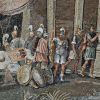 +2 +1
+2 +1I dug for evidence of the Rosetta Stone’s ancient Egyptian rebellion – here’s what I found
We uncovered evidence of a rebellion so significant, that events such as Cleopatra’s affairs and the rise of Christianity may not have come to pass without it.
-
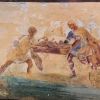 +1 +1
+1 +1An Archaeology of Personhood and Abortion
Opinions about fetal personhood and abortion have fluctuated enormously throughout history and differ in surprising ways between cultures.
-
 +28 +2
+28 +2‘My 50-year puzzle of the East Lothian hill where ancient fires burned’
Leading archaeologist Professor Ian Ralston has rewritten the story of Doon Hill in East Lothian, with his long career set to be honoured
-
 +23 +6
+23 +6Scent of the afterlife? Scientists re-create recipe for Egyptian mummification balm
Beeswax, plant oils, animal fats, bitumen, coniferous resins, coumarin, and benzoic acid.
-
 +32 +4
+32 +4Bizarre armor from Mycenaean Greece turns out to have been effective
People suspected the Dendra armor was ceremonial, but new tests show its utility.
-
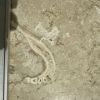 +26 +3
+26 +3Man notices ancient human jawbone embedded in parents' tile floor
A Reddit user got the surprise of a lifetime when they noticed a human-like jawbone embedded in the new travertine flooring at their parents' house.
-
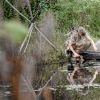 +22 +4
+22 +4My Search for the Origins of Clothing
An archaeologist uses climate data and tailoring tools to trace the origins and evolution of Paleolithic clothing in colder climates.
-
 +16 +3
+16 +3Wasabi could help preserve ancient Egyptian papyrus artefacts
Ancient and fragile papyrus samples are at risk of being damaged by fungi, but a wasabi-based treatment can disinfect them without damage
-
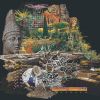 +32 +12
+32 +12How technology helped archaeologists dig deeper
Digital tools can help us understand ancient cities and the people who lived in them.
-
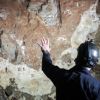 +51 +13
+51 +13The Oldest Known Burial Site in The World Wasn't Made by Our Species
Paleontologists in South Africa said they have found the oldest known burial site in the world, containing remains of a small-brained distant relative of humans previously thought incapable of complex behavior.
-
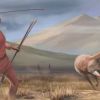 +52 +8
+52 +8One of The Biggest Hunter-Gatherers Myths Is Finally Getting Debunked
The enduring idea that men evolved to hunt and women evolved to gather is a relatively baseless assumption that is facing greater academic resistance than ever before.
-
 +47 +6
+47 +6Farmers or foragers? Pre-colonial Aboriginal food production was hardly that simple
For a decade, debate has raged over Dark Emu’s account of Aboriginal agriculture. But ancient food production in Australia is more complex than labels like farming or hunter-gathering suggest.
-
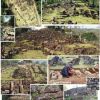 +51 +13
+51 +13Giant Pyramid Buried in Indonesia Could Be The Oldest in The World
A giant underground pyramid hidden beneath a hillside in Indonesia far outdates Stonehenge or the Giza Pyramids and may come to rival the oldest megalithic structures ever built by human hands.
-
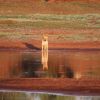 +42 +9
+42 +9Did Australia's First Peoples domesticate dingoes? They certainly buried them with great care
There’s been a long-standing debate over whether dingoes started out wild or domesticated. One thing is clear – they had a close relationship with First Peoples.
-
 +38 +2
+38 +2Scrolls were illegible for 2,000 years. A college student read one with AI.
Nebraska college student Luke Farritor used artificial intelligence to find the ancient Greek word for “purple” in the Herculaneum scrolls.
-
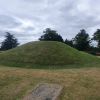 +39 +10
+39 +10The burials that could challenge historians' ideas about Anglo-Saxon gender
Skeletons found with items that don’t align with their estimated sex are usually excluded from research – but that assumes a 19th century view of gender.
-
 +50 +8
+50 +8We May Have Been Completely Wrong About The Origins of Syphilis in Europe
When Italian explorer Christopher Columbus and his Spanish troops returned to Europe from the Americas in the late 15th century, they notoriously brought back the deadly pathogen responsible for syphilis.
Submit a link
Start a discussion




















